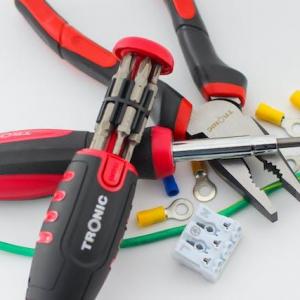
The nuances of situational interviews will be covered in this guide, along with helpful advice to help you handle scenario-based questions with assurance.
Understanding Situational Interviews
Situational interviews are designed to evaluate candidates' possible solutions to specific issues they might encounter in the workplace. Employers believe that analyzing a candidate's responses to made-up scenarios can disclose crucial details about their decision-making process, interpersonal abilities, and pressure capacity. Employers can see how candidates handle challenges in the real world through these interviews, which serve as a link between theoretical knowledge and practical application. Companies use hypothetical scenarios to test candidates' knowledge and abilities to see how they would apply them in the fast-paced, unpredictable workplace. Situational interviews are an essential part of the contemporary hiring process because they offer a holistic assessment of a candidate's preparedness for the nuances of the role. In addition to showcasing their abilities, candidates who successfully negotiate these situations show that they can flourish in the face of uncertainty—a skill that is highly prized in the fast-paced, constantly evolving world of modern work.Tips for Handling Scenario-Based Questions
Understand the Context
Please take a moment to fully comprehend the context of the scenario before responding. To show that you are paying attention to details and are committed to understanding the situation completely, ask clarifying questions as needed.Structure Your Response
Before answering, arrange your ideas. A well-organized answer demonstrates your capacity for logical thought and effective communication. Think of dividing your response into main elements like the issue, your strategy, the steps you took, and the solution.Draw on Relevant Experience
Using prior experiences to support your response can help even though situational interviews are hypothetical. Emphasize the techniques and methods you used to overcome similar obstacles by drawing comparisons between the situation and previous experiences.Be Adaptable
Companies want to know how flexible you are in response to shifting conditions, not just the solution. Keep an open mind to changing your strategy in response to fresh information or unforeseen events that occur in the scenario.Highlight Soft Skills
Assessment of soft skills like leadership, teamwork, and communication is a common goal of situational interviews. Make sure that the way you describe how you would lead in difficult situations, work with others, or communicate effectively demonstrates these skills.Quantify Your Achievements
Quantify your actions' impact whenever you can. Quantifiable results, whether in the form of time saved, money made, or increased efficiency, lend credibility to your response and highlight your contributions.Stay Calm Under Pressure
You should anticipate some pressure because situational interviews mimic real-world difficulties. Retain calm, consider carefully, and express yourself clearly. Being composed under duress can make a lasting impression.Stay True to Your Values
Respond to situations in a way that is consistent with your professional and personal values. By doing this, you can make sure that you show that you are committed to making moral decisions in addition to offering a solution.Practice, Practice, Practice
Respond to situations in a way that is consistent with your professional and personal values. By doing this, you can make sure that you show that you are committed to making moral decisions in addition to offering a solution.Conclusion
To sum up, situational interviewing is a useful skill that goes beyond giving canned answers; it's about demonstrating your flexibility, problem-solving abilities, and capacity to make a meaningful contribution to a team. Your ability to solve problems, adapt, and interact with others will all be put to the test in these interviews thanks to their scenario-based questions.By highlighting the significance of comprehending the context, organizing responses, and referencing pertinent experiences, the advice given offers a methodical approach to managing these kinds of interviews. Quantifying accomplishments, maintaining composure under duress, and demonstrating problem-solving strategies give your responses more substance and make a lasting impression on prospective employers.
Remember that every question in a situational interview is an opportunity to showcase not only your technical proficiency but also your adaptability and ability to succeed in a fast-paced work setting. You can present yourself as a candidate who not only offers solutions but also does so with integrity and strategic foresight by practicing consistently and matching your responses to your values. The secret to opening doors to exciting career opportunities in the constantly changing world of job interviews is becoming an expert in handling scenario-based questions.
Article
Be the first comment
Elite Article














